Top 10 Platform Engineering Tools You Should Consider in 2024
Recently, we wrote a great article about Platform Engineering and how to get started; well, now that you know much more about it, you might want to explore the best Platform Engineering tools to use in 2024. If that’s the case, this article is for you.

Albane Tonnellier
January 2, 2024 · 7 min read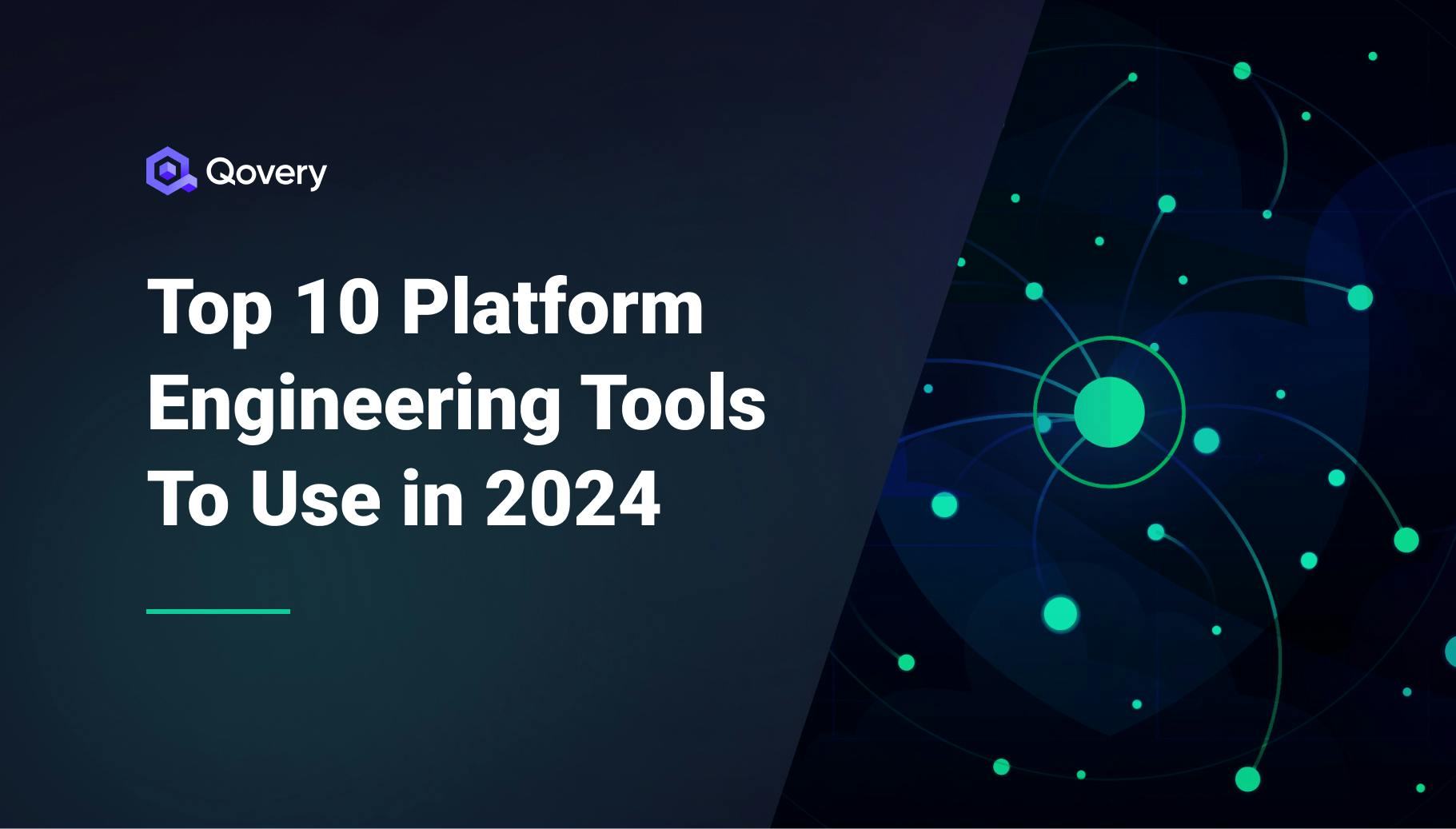
#What is Platform Engineering?
Before diving into the best Platform Engineering tools, let’s start with a clear definition of Platform Engineering.
Platform Engineering is the process of enabling software engineering teams with necessary resources so they can autonomously perform end-to-end operations of the application life cycle in a cloud environment. Platform Engineers develop an integrated product that provides self-service capabilities to developers. Whether it is infrastructure provisioning, code pipelines, monitoring, or container management, the self-service platform hides all these complexities and provides developers with all the necessities of the entire life cycle of the application. Platform Engineering is not just necessary tooling but a combination of tools, workflows, and processes.
#Tool 1: Kubernetes for Containers Orchestration
Kubernetes, also known as K8s, is an open-source system for automating deployment, scaling, and managing containerized applications. Several processes can be automated using Kubernetes, including container configuration, scaling, networking, and security.
Among the best automation tools, Kubernetes is useful for application packages with many containers. Using it, developers can isolate and package container clusters so they can be deployed on several machines at the same time.
Using Kubernetes, you can create Docker containers automatically and assign them based on demands and scaling needs.
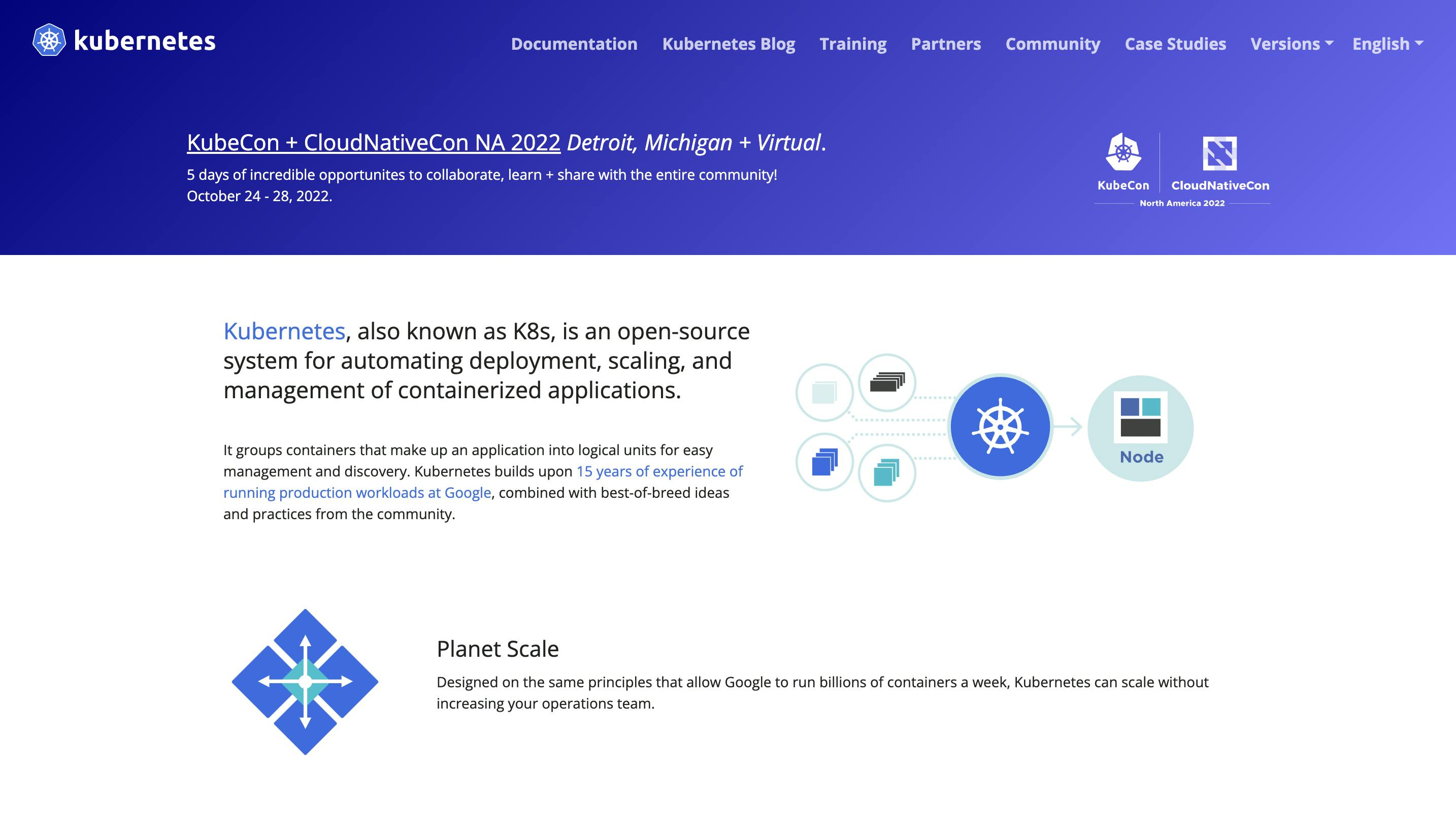
#Tool 2: Crossplane for Cross Kubernetes Infrastructure Management
Good platforms are usually built on control planes, but building a control plane requires writing code and much code. With Crossplane, you can securely build a control plane tailored to your unique needs in days without writing tricky distributed systems code.
Using Crossplane, you can orchestrate everything, not just containers, extending the battle-hardened reliability and security of Kubernetes. Because Crossplane is built on the same foundation as Kubernetes, it integrates smoothly with the most popular cloud-native tools.
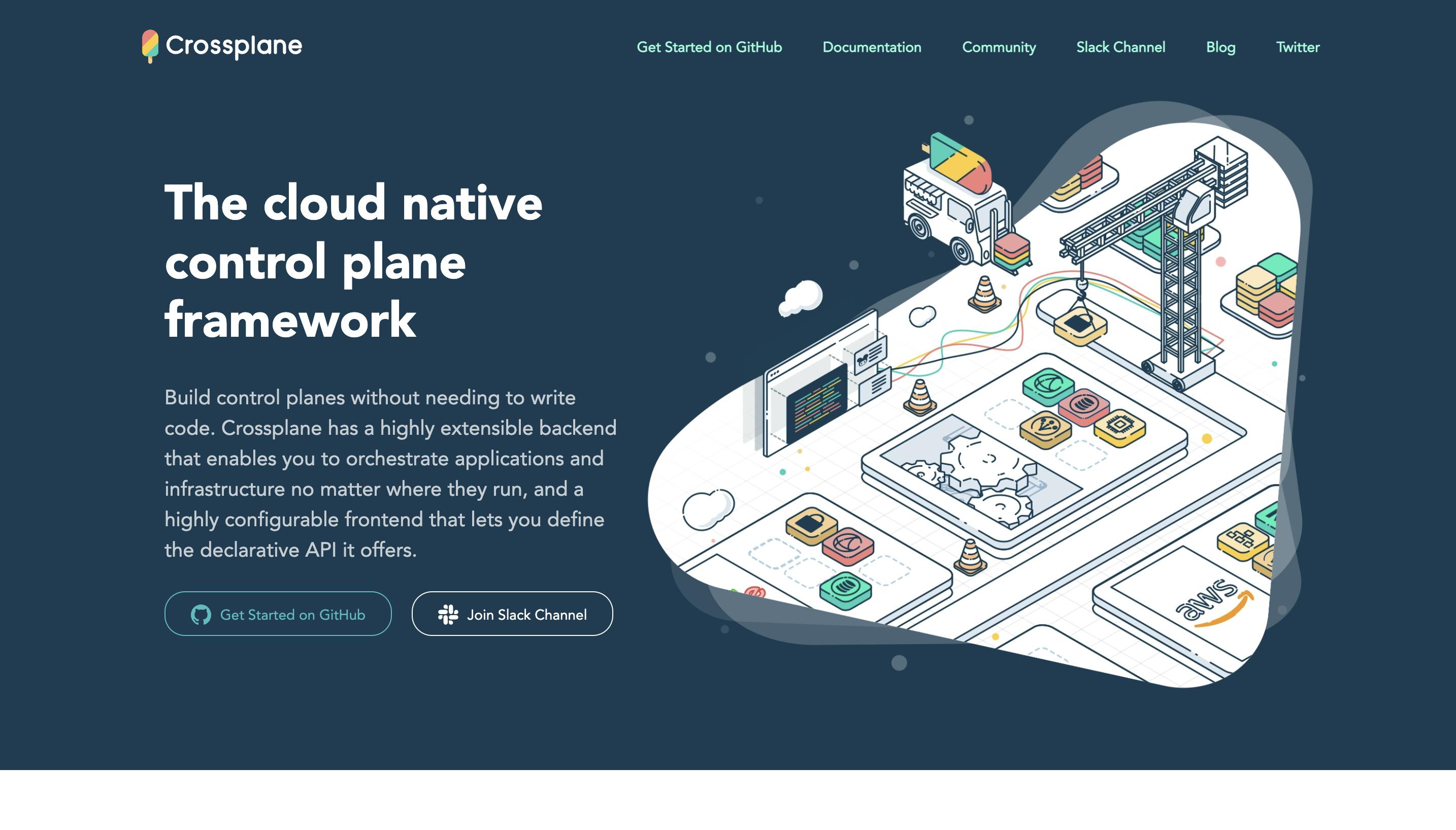
#Tool 3: Qovery for Internal Developer Platform (IDP)
Platform engineering is revolutionizing how companies build and run their cloud-native setups. Qovery is part of this revolution, enhancing the developer experience by enabling teams to build Internal Developer Platforms (IDPs) and reach true developer self-service.
In short, an Internal Developer Platform (IDP) is the collection of tech and tools used to pave golden paths for developers by a platform engineering team.
- An IDP consists of the following components:
- Infrastructure orchestration
- Application configuration
- Deployment management
- Environment management
- RBAC (Role-based Access Control)
As a result of IDPs, engineering organizations experience increased productivity with less cognitive load and can enable developer self-service without removing context from developers or making the underlying technologies inaccessible. An IDP that follows a Platform as a Product approach is built, maintained, and continuously improved by a platform team based on product management principles and best practices.
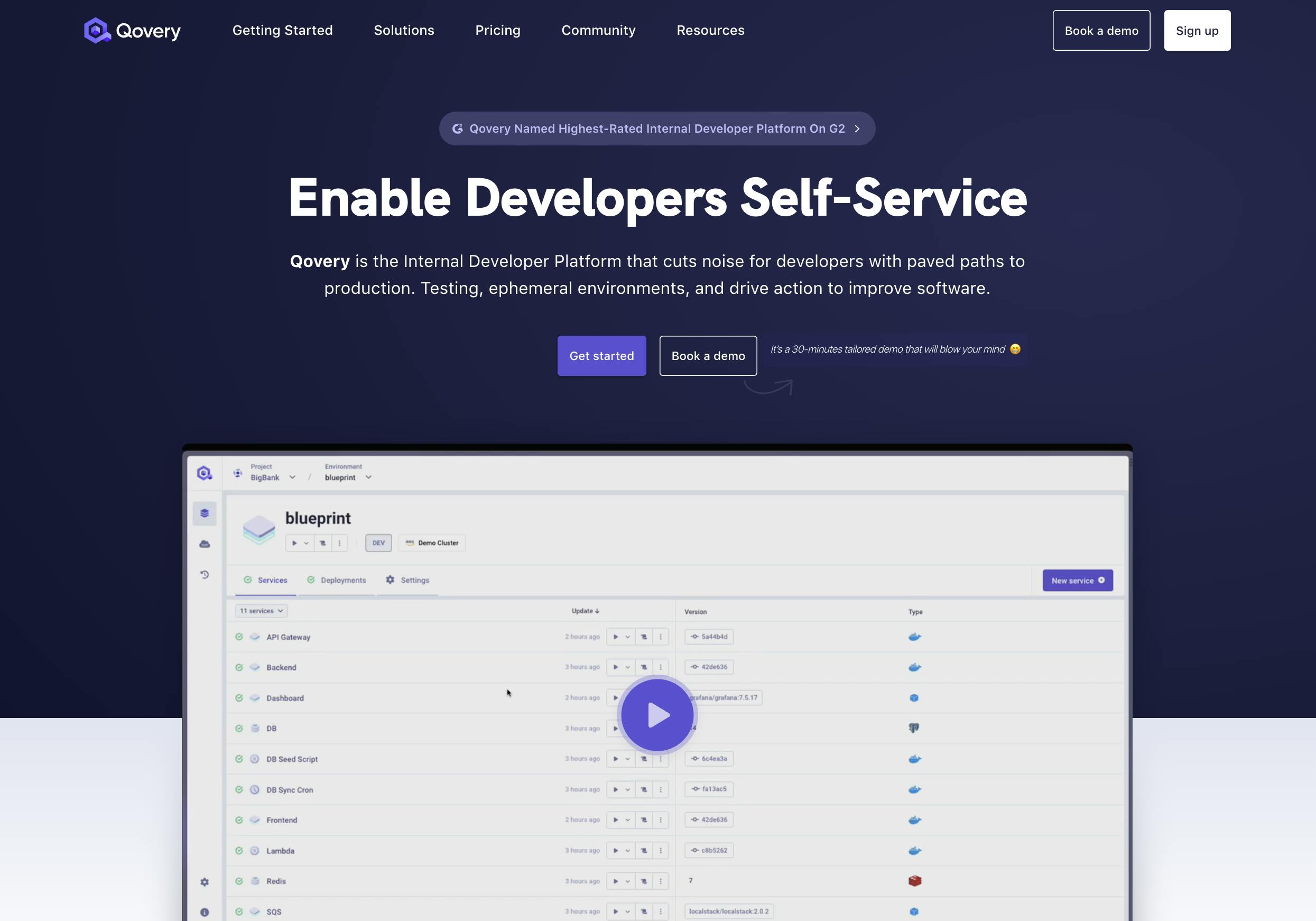
#Tool 4: Gitlab CI for your CI
GitLab CI/CD is a tool for software development using the continuous methodologies:
GitLab CI/CD sets the standard by automatically using Auto DevOps to build, test, deploy, and monitor your applications. Catching bugs and errors early in the development cycle ensures that all code deployed to production complies with the code standards you established for your app.
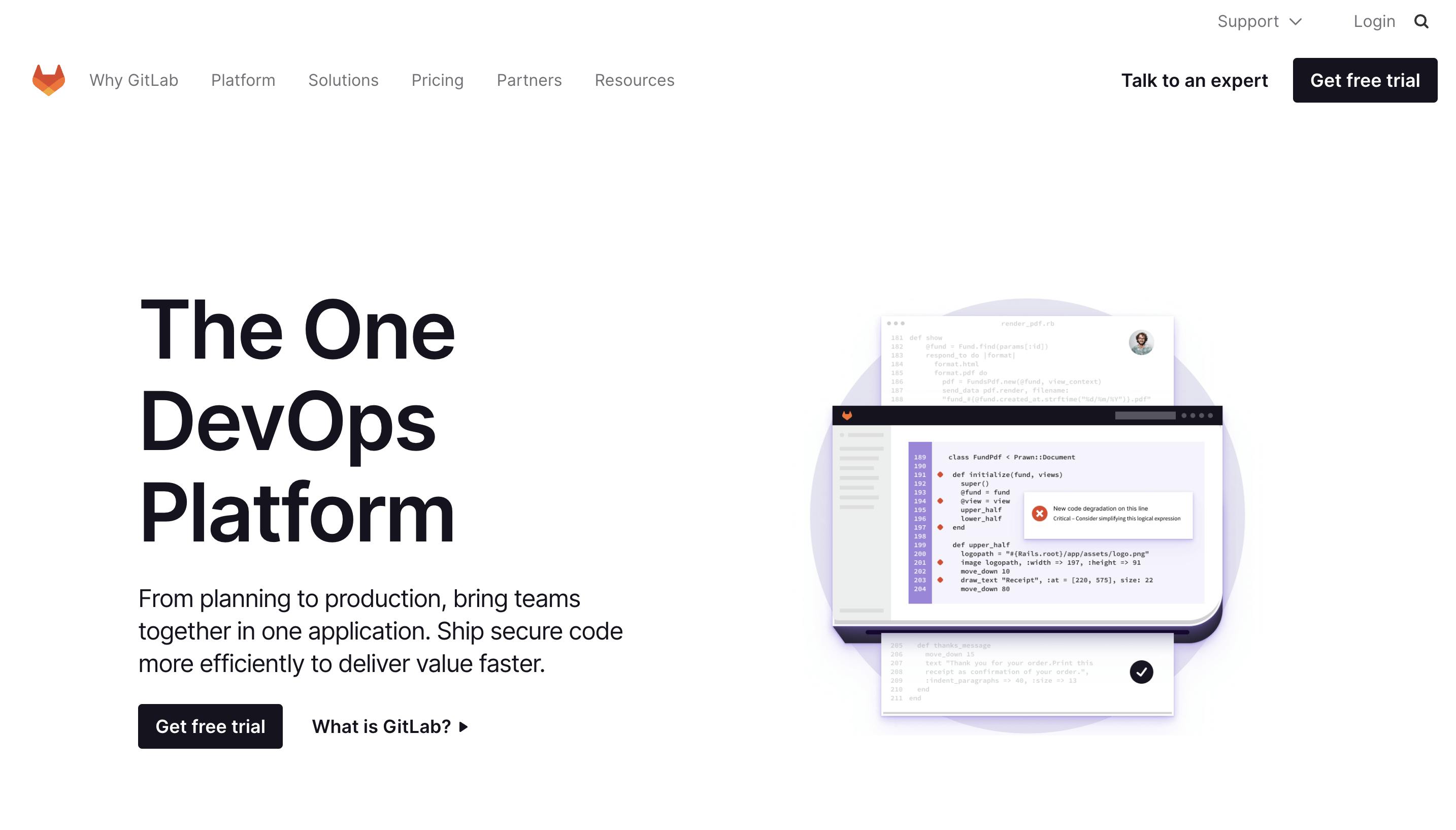
#Tool 5: Port for Building Developer Portals
Port serves as a centralized interface for DevOps teams to manage their applications and infrastructure. Customizable dashboards let you focus on the metrics that matter most to your team. With role-based access controls and built-in integrations, Port fits well in ecosystems that include GitHub and Jira.
/!\ This is not to be confused with an Internal Developer Platform. Read this article to understand the main differences between the two.
It supports Engineering Managers by allowing them to maintain standards and best practices across the organization. It can help them manage their whole tech ecosystem, from migrations to test certification. Developers, as it makes it fast and straightforward to build software components in a standardized way. It provides a central place to manage all projects and documentation. Platform engineers as it enables extensibility and scalability by letting them easily integrate new tools and services (via plugins), as well as extending the functionality of existing ones and everyone else as Backstage unifies all your infrastructure tooling, services, and documentation to create a streamlined development environment from end to end.
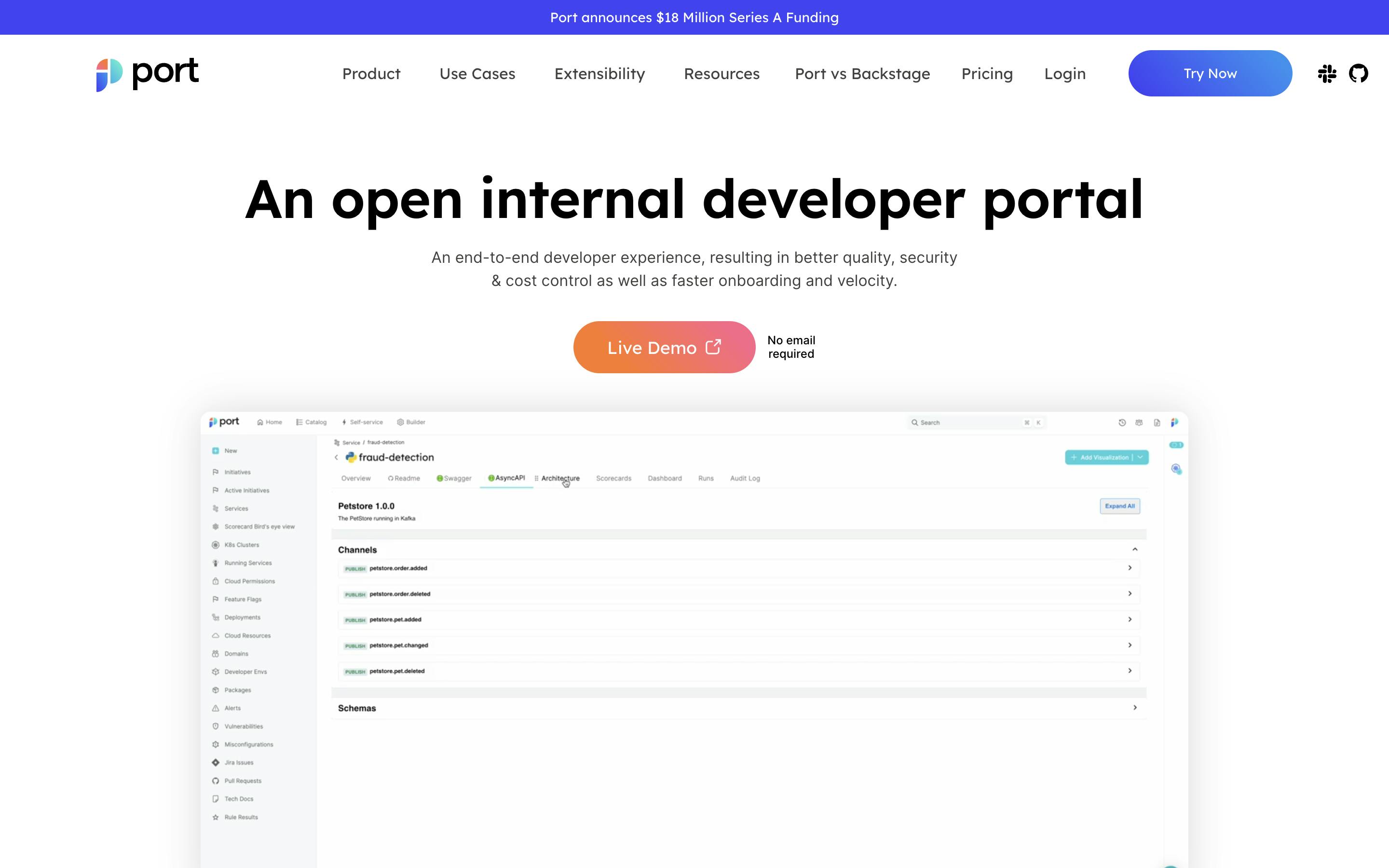
#Tool 6: ArgoCD for your CD
Argo CD is a Kubernetes-native continuous deployment (CD) tool, scaled to meet the needs of modern applications. With Argo CD, you can deploy updated code directly to Kubernetes resources rather than using external CD tools that only allow push-based deployments. In one system, developers can manage both infrastructure configuration and application updates.
Key features and capabilities of Argo CD include manual or automatic deployment of applications to a Kubernetes cluster, automatic synchronization of application state to the current version of the declarative configuration, a web user interface and command-line interface (CLI), role-based access control (RBAC) enabling multi-cluster management and much more.
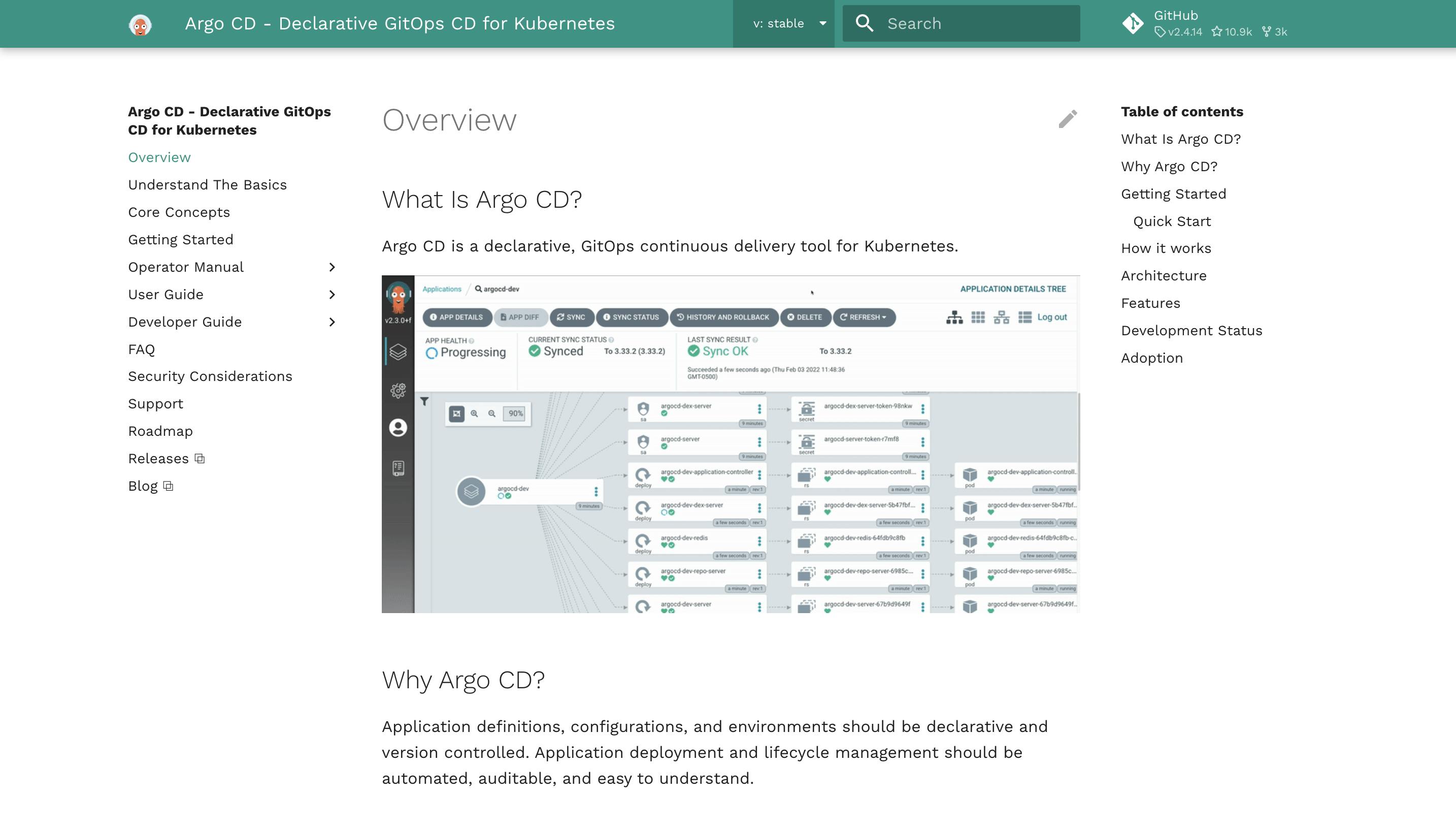
#Tool 7: Docker to Containerize your Application
Docker is an open-source platform that enables developers to efficiently build, test, deploy, run, update and manage applications in resource-independent environments. Each container has a complete runtime environment, including the specific application's libraries, source code, configurations, and dependencies.
Containerization and microservices are used extensively for Platform Engineering for efficient application development and deployment, while Docker and Kubernetes are the most widely used container technologies.
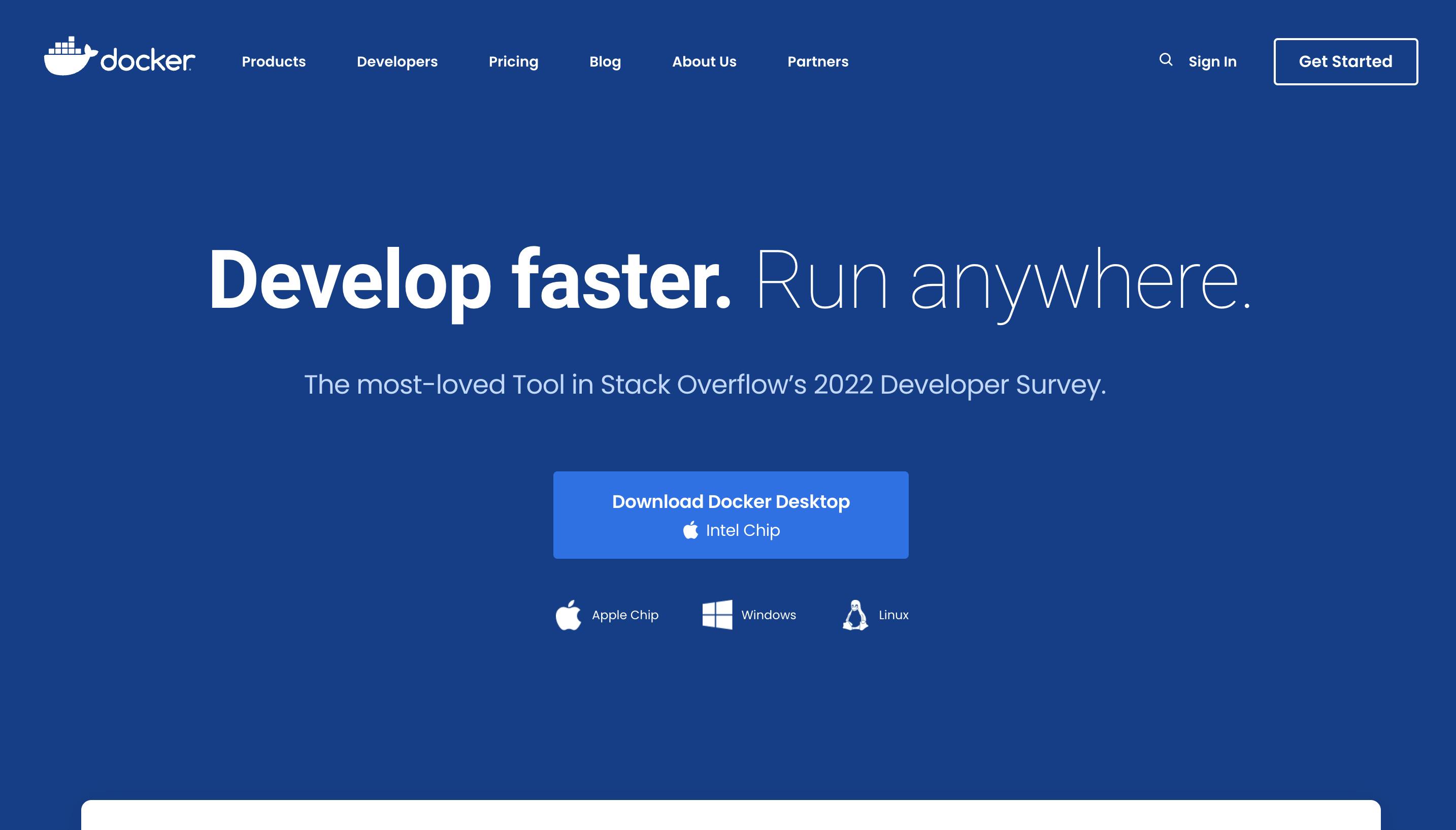
#Tool 8: Terraform to Automate Infrastructure Provisioning
Terraform is an open-source infrastructure as a code software tool created by HashiCorp. Thousands of products provide Terraform plugins (called providers) to manage them. You describe in a file how you want to configure your software and how you want to connect them, and Terraform manages everything for you. It is not magic. Thanks to the big Terraform community for providing and maintaining all the Terraform Providers.
By using Terraform, it becomes easier to create, modify, and improve your infrastructure without having to worry about manually provisioning or managing it. You can use AWS, Azure, Google Cloud, Kubernetes, OpenStack, and more. DNS records, monitoring systems, and custom providers can be managed with Terraform. It is easy to get started with and easy to use. Additionally, it is very powerful, enabling it to manage complex infrastructure quickly and efficiently.
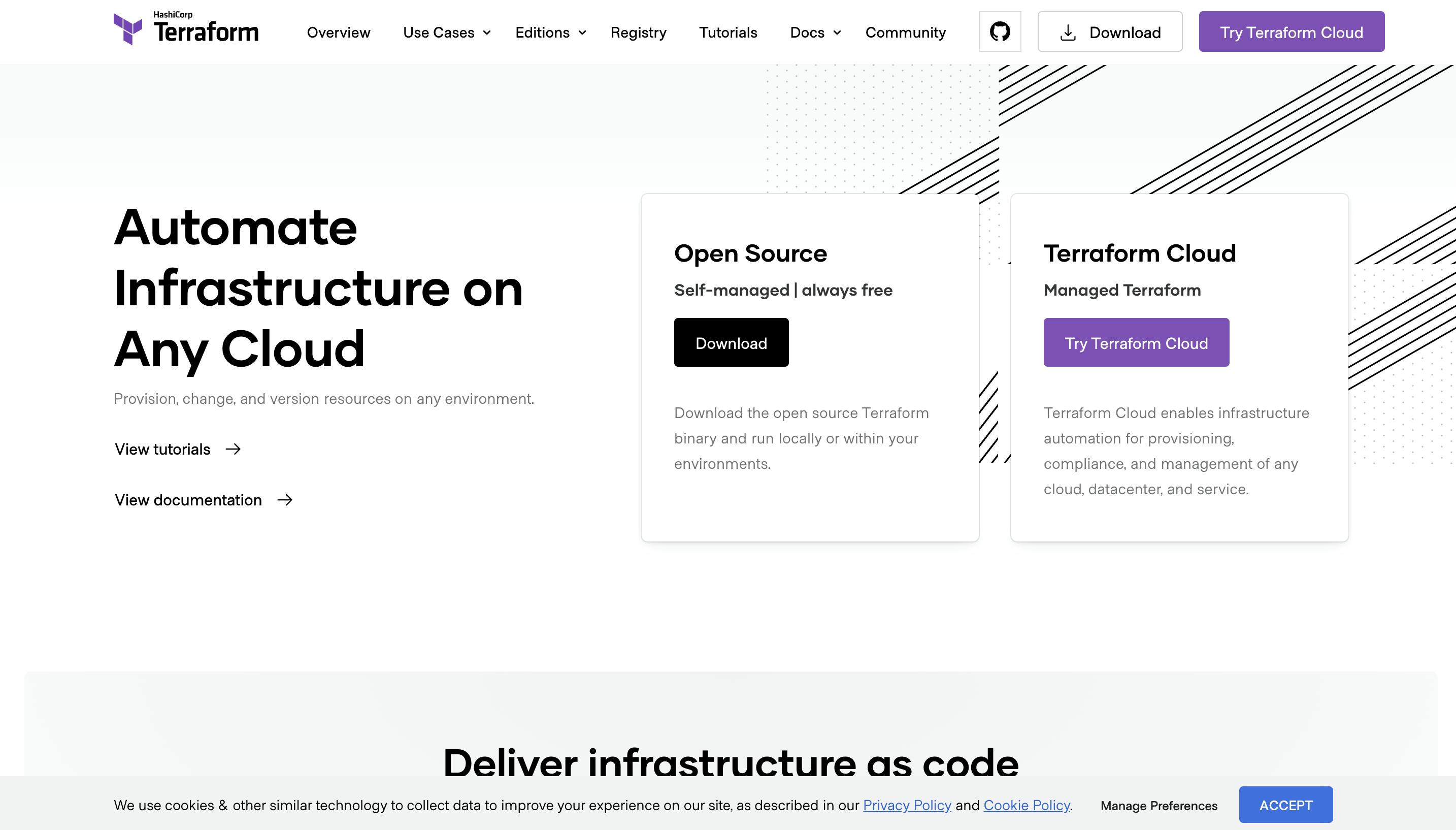
#Tool 9: Doppler for Secret Management
Through its platform, Doppler serves as an encrypted source of truth for teams, allowing them to organize app secrets across projects and environments and roll back changes as needed. In Doppler, users can create references to frequently used secrets and receive alerts via Slack and Microsoft Teams when something changes.
It makes it the perfect tool for collaboration as after adding a secret, your team and their apps have it instantly, and it’s a precious time saver as you can automate the whole process by creating references to frequently used secrets in Doppler. When they need to change, you only need to update them once.
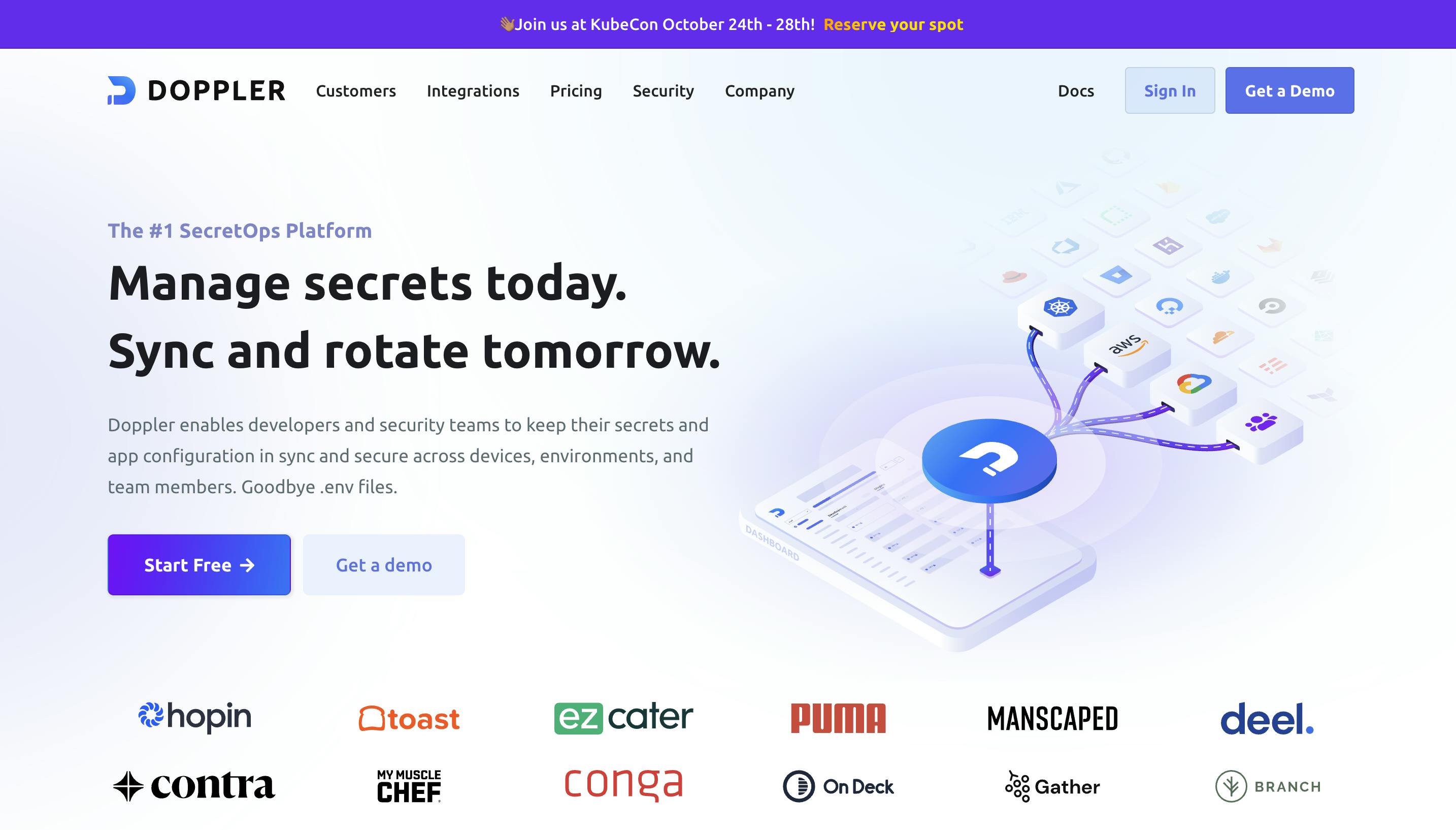
#Tool 10: Datadog for Monitoring & Logging
Datadog is a robust monitoring and analytics platform for cloud-scale applications, providing full-stack observability. With Datadog, you can collect, visualize, and correlate metrics and logs across your infrastructure. It offers a comprehensive view of your environment, enabling you to monitor application performance, detect anomalies, and troubleshoot issues efficiently. Datadog's integrations with various services and technologies facilitate real-time insights and proactive monitoring.
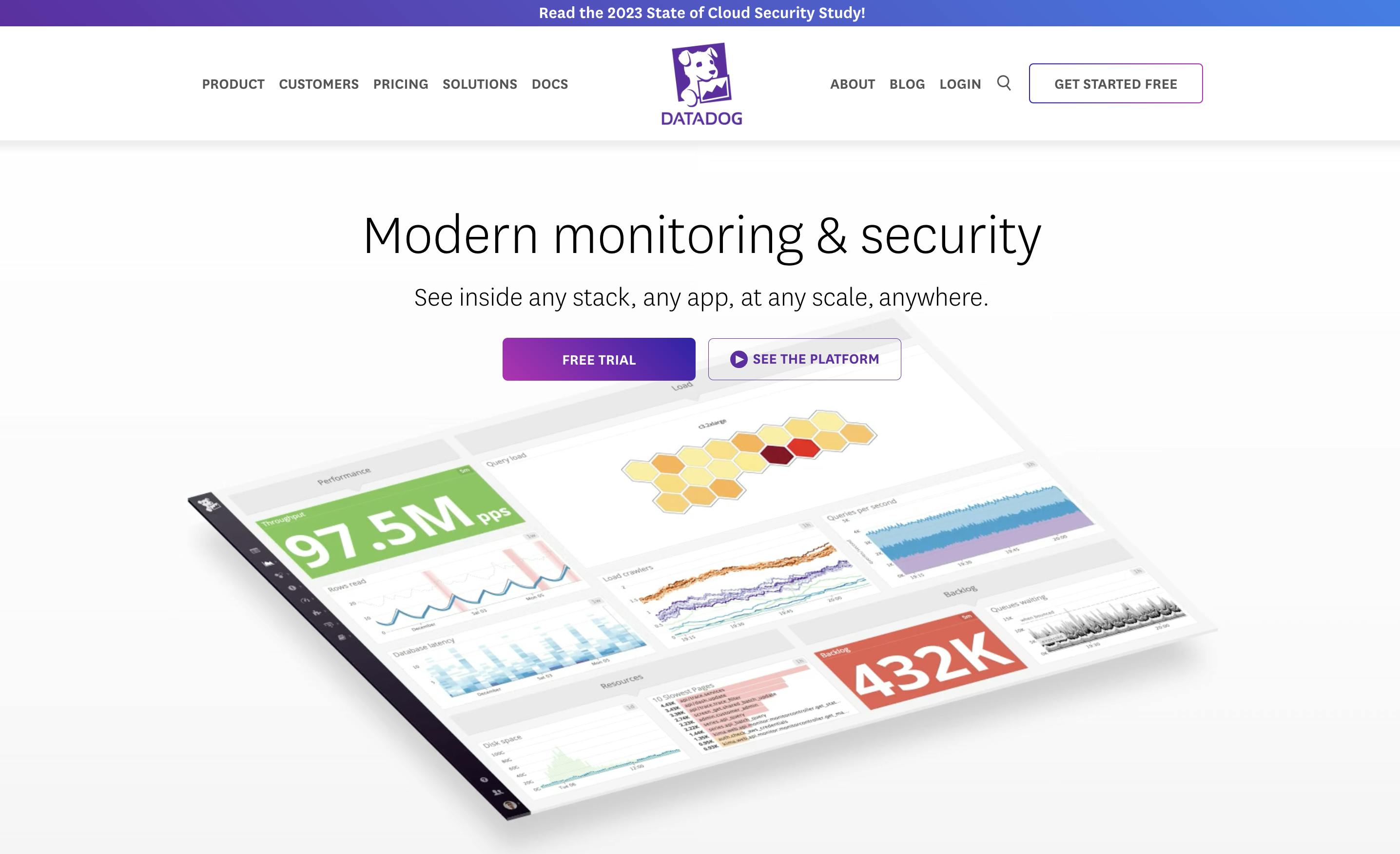
#Wrapping up
It isn't easy to pick a Platform Engineering tool best suited for your needs. Factors like cost, skillset, features, UI/UX, etc., play a decisive role in choosing the right tool for your business. The best choice is not to use just one tool. Instead, use a combination of tools suited to your needs.
At Qovery, we also use many Platform Engineering tools. These include the following:
- Infrastructure as Code: Terraform
- Internal Developer Platform: Qovery (yes, we are using Qovery for Qovery 😅)
- CI/CD: GitHub Actions, Gitlab CI
- Deployment tools: Helm, Kubernetes
- Environment as a Service: Qovery
- Secret Management: Vault, AWS KMS
- Observability & Monitoring: Datadog, Grafana (including Loki & Promtail), Prometheus (including Alertmanager)
Whether you are taking your first steps with Platform Engineering or you are an expert, we aim to support your journey by introducing you to these essential tools. If you have any other ideas, don’t hesitate to give us a shout or share them on the forum so the rest of the community can enjoy them as well.
Your Favorite DevOps Automation Platform
Qovery is a DevOps Automation Platform Helping 200+ Organizations To Ship Faster and Eliminate DevOps Hiring Needs
Try it out now!

Your Favorite DevOps Automation Platform
Qovery is a DevOps Automation Platform Helping 200+ Organizations To Ship Faster and Eliminate DevOps Hiring Needs
Try it out now!
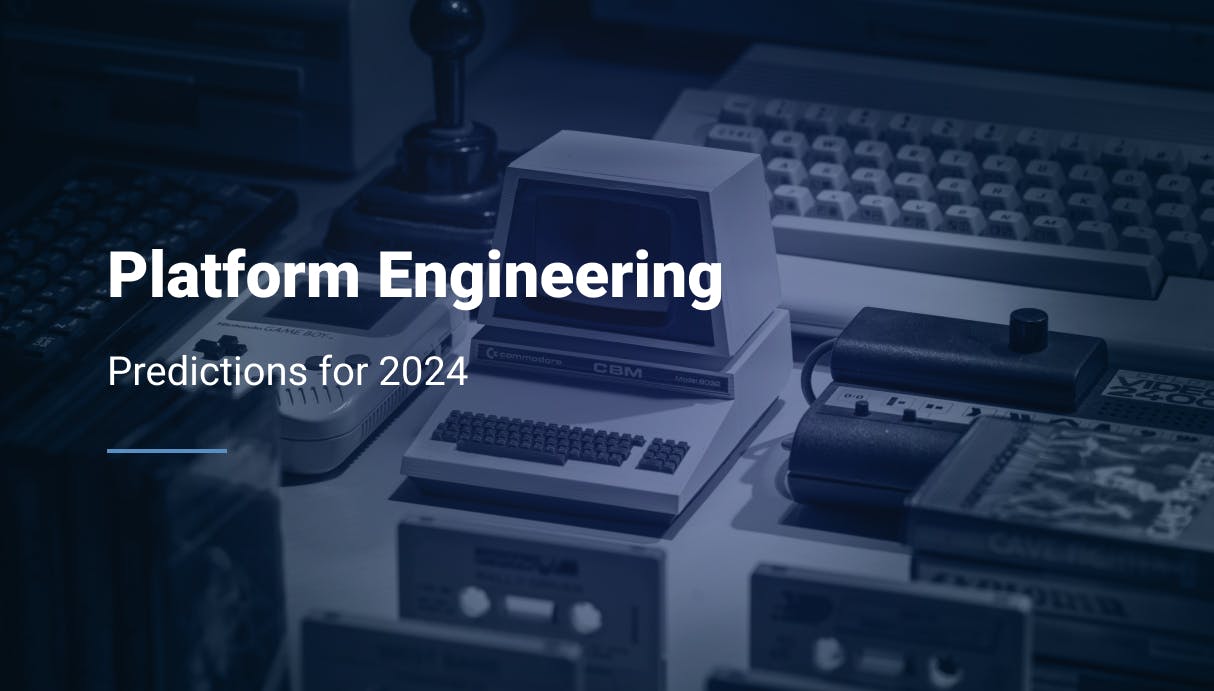
.jpg?ixlib=gatsbyFP&auto=compress%2Cformat&fit=max)
